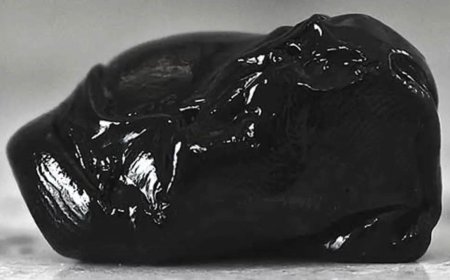Brown Discharge During Pregnancy: Causes, Symptoms, and Treatment
Learn about the causes, symptoms, and treatment of brown discharge during pregnancy. It is a common issue that many pregnant women may experience.

Brown Discharge During Pregnancy: Causes, Symptoms, and Treatment
Pregnancy is a beautiful journey for a woman. It is full of surprises and changes, both emotional and physical. As much as it is a wonderful experience, it can also be nerve-wracking. One of the things that can cause anxiety in a pregnant woman is experiencing brown discharge. It is not uncommon, but it can be alarming. In this article, we will explore the causes, symptoms, and treatment of brown discharge during pregnancy.
What is Brown Discharge?
Brown discharge during pregnancy is a common issue that many pregnant women may experience. It is characterized by the presence of brown-colored discharge or spotting during pregnancy. Brown discharge can occur at any point during pregnancy, but it is most common during the first trimester. It can be a sign of a normal pregnancy, but it can also indicate an underlying issue that requires medical attention. Brown discharge during pregnancy can have various causes, such as hormonal changes, cervical changes, infections, ectopic pregnancy, or even miscarriage. It's important to consult with your doctor if you experience brown discharge during pregnancy to determine the underlying cause and receive appropriate treatment if necessary.
Is Brown Discharge Normal During Pregnancy?
Brown discharge during pregnancy can be normal in some cases, but it can also be a sign of an underlying issue that requires medical attention.
During early pregnancy, brown discharge may be a result of implantation bleeding, which occurs when the fertilized egg implants itself in the uterus. Implantation bleeding usually occurs around the time when the woman would have expected her period, and it can be mistaken for a light period. This is a normal part of early pregnancy, and brown discharge in this case should not be a cause for concern.
Another normal cause of brown discharge during pregnancy is hormonal changes. Pregnancy causes changes in the levels of hormones in a woman's body, which can cause changes in the cervix and result in brown discharge.
However, brown discharge during pregnancy can also be a sign of an underlying issue, such as an infection, ectopic pregnancy, or miscarriage. Therefore, it's important for pregnant women to consult with their healthcare provider if they experience brown discharge, especially if it's accompanied by other symptoms such as abdominal pain, cramping, or fever.
Causes of Brown Discharge During Pregnancy
There are several reasons why a pregnant woman may experience brown discharge. Some of the common causes include:
Implantation Bleeding
Implantation bleeding is one of the earliest signs of pregnancy. It occurs when the fertilized egg attaches itself to the uterine lining, which can cause light bleeding and brown discharge. It usually occurs a few days before your period is due and can last for a few days.
Infections
Infections such as bacterial vaginosis, yeast infections, and sexually transmitted infections (STIs) can cause brown discharge during pregnancy. These infections can cause inflammation in the cervix, which can result in bleeding and discharge.
Cervical Polyps
Cervical polyps are benign growths that occur in the cervix. They are usually harmless, but they can cause brown discharge during pregnancy. They can also cause bleeding after sexual intercourse.
Sexual Intercourse
Sexual intercourse during pregnancy can also cause brown discharge. This is because the cervix is more sensitive during pregnancy and can bleed easily. It is usually nothing to worry about and will go away on its own.
Miscarriage
Brown discharge during pregnancy can also be a sign of a miscarriage. Miscarriage is the loss of a pregnancy before the 20th week. It is usually accompanied by other symptoms such as cramping and abdominal pain.
Symptoms of Brown Discharge During Pregnancy
Brown discharge during pregnancy may not always be accompanied by symptoms, but in some cases, it can be a sign of an underlying issue. Here are some symptoms that may be present along with brown discharge:
-
Abdominal pain: If you experience abdominal pain along with brown discharge, it could be a sign of an ectopic pregnancy or a miscarriage.
-
Itching or burning sensation: If you have an infection such as bacterial vaginosis or a yeast infection, you may experience itching or burning along with brown discharge.
-
Foul odor: If the brown discharge has a foul odor, it could be a sign of an infection.
-
Heavy bleeding: If the brown discharge is accompanied by heavy bleeding, it could be a sign of a miscarriage or an ectopic pregnancy.
-
Dizziness or fainting: An ectopic pregnancy can cause dizziness or fainting along with brown discharge.
It's important to note that some women may experience brown discharge without any symptoms at all. However, if you experience any of the above symptoms, it's important to consult your doctor immediately.
Treatment of Brown Discharge During Pregnancy
The treatment of brown discharge during pregnancy depends on the underlying cause. Some of the common treatment options include:
Rest
If the brown discharge is caused by implantation bleeding or sexual intercourse, it is usually nothing to worry about and will go away on its own. Resting and avoiding sexual intercourse can help alleviate the symptoms.
Medications
In some cases, medications may be prescribed to treat infections or hormonal imbalances that are causing the brown discharge. It is important to talk to your doctor before taking any medications during pregnancy.
Here are some more common treatments for brown discharge during pregnancy:
-
Ectopic pregnancy: If the brown discharge is a sign of an ectopic pregnancy, immediate medical treatment is necessary. Depending on the severity of the ectopic pregnancy, treatment may involve medication or surgery.
-
Miscarriage: If the brown discharge is a sign of a miscarriage, medical treatment may be necessary to ensure the uterus is fully emptied. This may involve medication or a surgical procedure called a dilation and curettage (D&C).
-
Infections: As mentioned earlier, infections such as bacterial vaginosis or yeast infections may require antibiotics or antifungal medication.
-
Hormonal changes: If the brown discharge is caused by hormonal changes, treatment may not be necessary as it is a normal part of pregnancy. However, your doctor may recommend monitoring the discharge and any associated symptoms.
-
Cervical changes: If the brown discharge is caused by cervical changes such as cervical polyps or cervical erosion, treatment may involve removing the affected tissue.
It's important to consult your doctor if you experience brown discharge during pregnancy to determine the underlying cause and receive appropriate treatment. In some cases, brown discharge may be a sign of a serious issue and immediate medical attention may be necessary.
Treatment of Infections
If brown discharge during pregnancy is caused by an infection, it's important to seek medical treatment as soon as possible to prevent any potential complications. Here are some common treatments for infections that can cause brown discharge during pregnancy:
-
Bacterial vaginosis: This is typically treated with antibiotics, either taken orally or applied topically. Your doctor may also recommend probiotics to help restore the balance of bacteria in your vagina.
-
Yeast infection: Over-the-counter antifungal medications such as miconazole or clotrimazole are often used to treat yeast infections. Your doctor may also prescribe a stronger antifungal medication if necessary.
-
Sexually transmitted infections (STIs): The treatment for STIs varies depending on the specific infection. Antibiotics are typically used to treat bacterial STIs such as chlamydia or gonorrhea, while antiviral medications may be used to treat viral STIs such as herpes or HIV.
In addition to medical treatment, it's important to practice good hygiene and avoid irritants such as douches or scented feminine hygiene products. It's also important to avoid sexual activity until the infection has been fully treated.
If you experience brown discharge during pregnancy, it's important to consult your doctor to determine the underlying cause and receive appropriate treatment.
Surgery
In rare cases, surgery may be required to remove cervical polyps or to treat a miscarriage.
When to See a Doctor?
If you are experiencing brown discharge during pregnancy, it is important to talk to your doctor. You should seek medical attention if:
- The brown discharge is accompanied by severe abdominal pain or cramping
- You experience a fever or chills
- The discharge has a foul odor
- You notice blood clots in the discharge
- The discharge is heavy or prolonged
Conclusion
Brown discharge during pregnancy is a common occurrence, but it can be alarming. It is usually caused by hormonal changes and old blood mixing with vaginal discharge. However, in some cases, it can be a sign of an underlying issue that requires medical attention. If you are experiencing brown discharge during pregnancy, it is important to talk to your doctor. With proper diagnosis and treatment, most cases of brown discharge during pregnancy can be resolved.
Also Read: Nose Shape Changes During Pregnancy: What to Expect
What's Your Reaction?






















































